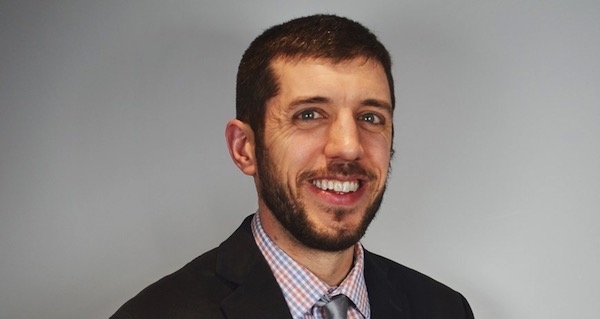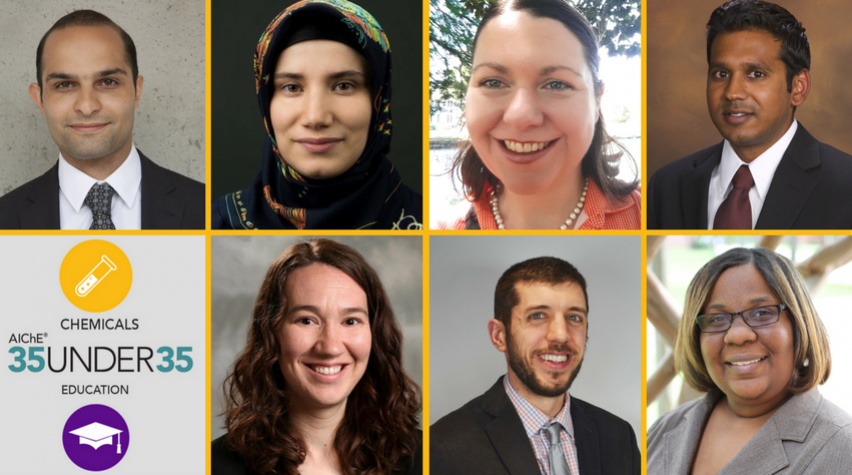
With support from the AIChE Foundation, AIChE and its Young Professional Committee (YPC) are honoring 35 notable young professionals under the age of 35 based on achievements in seven categories: bioengineering, chemicals, energy, innovation, education, leadership, and safety.
The winners in all seven categories were announced in the August 2017 issue of CEP Magazine.
This week on ChEnected we're featuring interviews from winners in the chemicals and education categories. Winners are presented in alphabetical order, by last name. Or you can click on their names in the list below to go directly to their interview. Be sure to congratulate the winners by sharing on social media with the hashtag #AIChE35Under35.
- Ali Mesbah, 34
- Betul Bilgin, 33
- Rajamani Gounder, 32
- Ellen Kloppenborg, 30
- Lucas Landherr, 34
- Sheena M. Reeves, 33
- Ashlee N. Ford Versypt, 33
Category: Chemicals
Ali Mesbah, 34:
Computing advanced process control solutions
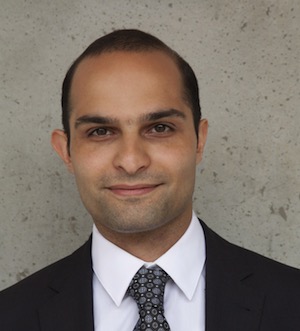
Ali Mesbah is an assistant professor of chemical and biomolecular engineering at the Univ. of California, Berkeley. He develops advanced computational tools for systems analysis and advanced control of novel chemical and biomolecular engineering applications. In 2015, Ali won the AIChE CAST W. David Smith, Jr. Graduation Publication Award. Ali has been a senior member of AIChE since 2013.
AIChE YPC: What inspired you to pursue chemical engineering?
Ali Mesbah: The diversity of chemical engineering. Chemical engineering fundamentals are applicable to a wide range of applications, spanning from nano- and micro-length scale systems to traditional large-scale processes.
AIChE YPC: Chemical engineering is a diverse field. How did you get involved in your speciality?
AM: After my master's degree in chemical engineering, my research interests evolved in the direction of applied mathematics and process control. Hence, I decided to pursue my PhD in systems and control theory with the goal of developing advanced computational tools for systems analysis and advanced control of novel chemical and biomolecular engineering applications.
AIChE YPC: What is the most challenging part of your job?
AM: In general, effective time management (eg., balancing time between teaching, research, and service to the community) is a critical aspect of my job. On the technical side, describing advanced mathematical concepts in a manner that is appealing and accessible to the newcomers to the field can be very challenging.
AIChE YPC: What do you enjoy most about your job?
AM: I find the scientific discussions/interactions with my students one of the most enjoyable and rewarding aspects of my job.
AIChE YPC: What lesson do you wish you would have learned sooner?
AM: Being able to identify my research interests earlier on during my undergrad years would have helped better prepare me for my graduate research.
AIChE YPC: What are your goals for the future?
AM: My end goal is to ensure that our research developments have impacts on society.
Fun Fact about Ali
- If you were not a chemical engineer, what would you be? Philosopher
My end goal is to ensure that our research developments have impacts on society.
Learn more about Ali in CEP Magazine.
Category: Education
Betul Bilgin, 33
Combining art and science in teaching.
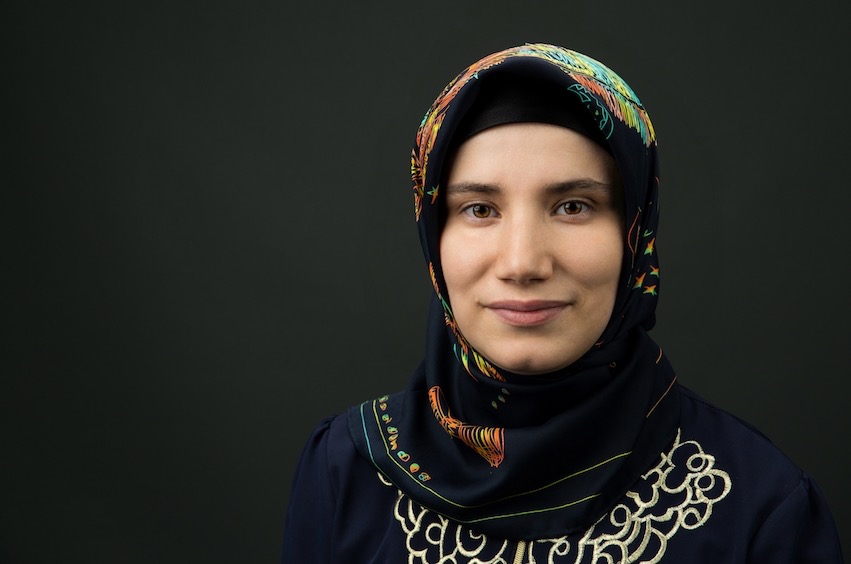
Betul Bilgin is an assistant professor at University of Illinois at Chicago (UIC) in the chemical engineering department. She is also working to develop the next generation of chemical engineering students. She combines art and science in demonstrations for grade-school students to teach children about the profession in a fun and engaging environment. In 2017, Betul was named the UIC Teaching Scholar.
AIChE YPC: Tell us about your current and past involvement in AIChE.
Betul Bilgin: I am and was actively involved in both the Student Chapter and the Chicago AIChE Local Section. I mentor the Student Chapter President, organizing Chapter meetings, guest lectures, and plant tours. We successfully organized the first and second Industry Day, the first Alumni Mixer, and the first ChemE forum. I try to build bridges between the AIChE Local Section and the department. I was part of the 2017 AIChE Midwest Regional Conference (MRC) organization committee and responsible for the High School Outreach program.
AIChE YPC: Chemical engineering is a diverse field. How did you get involved in your specialty?
BB: I started as a chemistry major. During my college years, I spent my summers as an intern in the biological engineering department. After that, I started to be interested in applications. When I was applying for graduate school, I decided to apply for chemical engineering. The diversity of the field was very attractive to me and I was specifically interested in bio applications. Thus, I did my PhD in the biotech area of chemical engineering. The idea of solving the puzzle of the human body and understanding what is happening in your body is very rewarding and exciting.

AIChE YPC: What professional achievement are you most proud of?
BB: I am really proud of my success in promoting chemical engineering through art to school-aged children. I perform special art called water marbling in which I draw on water. While performing water marbling, I am able to tell my audience, which usually consists of school aged-children, about chemical engineering principles. This way, I expose young generations to chemical engineering in a fun environment. Students call me "magician" :) And I explain to them this is not magic, this is science. I visited many schools and performed at more than twenty events. At the beginning of the event, I ask them if they know any chemical engineers, and so far nobody answered yes. And at the end of the performance, they know what chemical engineering means and who chemical engineers are. This makes me very proud.
AIChE YPC: What is a challenge you overcame and how did you overcome it?
BB: The first year I started teaching at the UIC Chemical Engineering Department was very challenging. I was appointed two weeks after the semester started. I was going to teach a senior design course that I had no experience teaching. With short notice, lack of experience and no prior course material, that semester was very hard for me. Moreover, that was the semester that the department was evaluated by for ABET accreditation. I had many sleepless nights. I asked colleagues and tried to learn from them about teaching approaches and tools. As a result, everything turned out well. The ABET Program Evaluator appraised my dedication, effectiveness, and enthusiasm. I was able to cover all the material effectively.
AIChE YPC: What is the most challenging part of your job?
BB: The most challenging part of my job is time management. There are so many different tasks that I need to finish with a limited amount of time. There is always a lot more that I really want to do and bring to my classrooms. However, after the semester starts, time flies. I wish I had more time to learn about effective teaching techniques and tools.
AIChe YPC: What do you enjoy most about your job?
BB: I love building relationships with my students and seeing how they improve and mature though the semester. I really enjoy observing their improvements not only on the technical side but also in grasping new skills including team work, communication, and leadership. I like mentoring and guiding them. Moreover, I like to connect with them after they graduate and learn from their experiences. Learning from them is a wonderful gift.
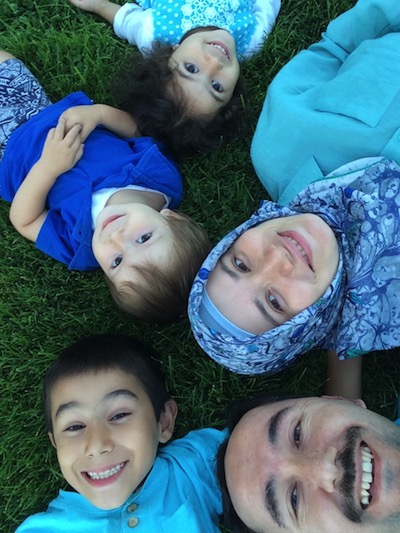
AIChE YPC: What are your goals for the future?
BB: I am planning to continue my career to gain more expertise in engineering education research. I am interested not only in teaching but also understanding how students learn chemical engineering. I am enthusiastic about developing and designing new techniques and tools to actively engage students. I am a lifetime learner, continuously improving myself to become an excellent engineering education researcher in the field. My passion is to create a "community of learners." I am enthusiastic about connecting all parts of the engineering community, including students, faculty, and industry professionals as well as middle and high school students.
Fun Facts about Betul
- Favorite snack food: Watermelon with cheese
I am a lifetime learner, continuously improving myself to become an excellent engineering education researcher in the field.
Learn more about Betul in CEP Magazine.
Rajamani Gounder, 32
Making catalysis a more predictable science
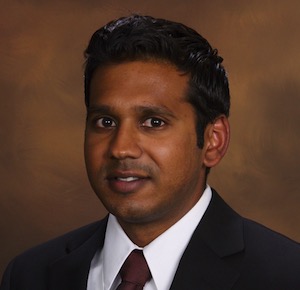
Rajamani Gounder is an assistant professor of chemical engineering at Purdue University. An undergraduate research project sparked his interest in catalysis and academia, and he now spends most of his days thinking about catalysis. Rajamani has received the NSF Career Award and was named Outstanding Mentor of Engineering Graduate Students at Purdue University, among many other honrs.
AIChE YPC: Tell us about your current and past involvement in AIChE.
Rajamani Gounder: My involvement at AIChE has included Catalysis and Reaction Engineering Division Faculty Advisor, Purdue University Student Chapter Session Chair, and multiple Annual Meeting presentations for the CCE Division.
AIChE YPC: What inspired you to pursue chemical engineering?
RG: My favorite subjects in high school were math and chemistry. Once I got to college, upon learning that chemical engineering was among the most demanding undergraduate majors and provided favorable employment prospects, I was sold.
AIChE YPC: Chemical engineering is a diverse field. How did you get involved in your specialty?
RG: As an undergraduate freshman at the University of Wisconsin, I was very fortunate to have the opportunity, through a somewhat circuitous route, to perform a research project in the laboratory of Professor James Dumesic. Professor Dumesic sparked my interest in catalysis and inspired me to pursue graduate research in catalysis with Professor Enrique Iglesia at UC-Berkeley. Professor Iglesia cultivated my interest in catalysis and inspired me to become an academic. The rest is history, and I now spend most of everyday thinking about catalysis.
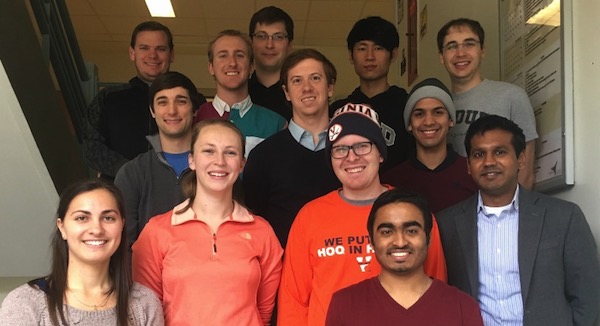
AIChE YPC: What professional achievement are you most proud of?
RG: The cadre of students I have trained and educated to become independent scientists and engineers.
AIChE YPC: What is the most challenging part of your job?
RG: Protecting several blocks of uninterrupted and distraction-free time each week for deep thinking and scholarly output.
AIChE YPC: What do you enjoy most about your job?
RG: The opportunity to work with and learn from talented, energetic, and creative students on a daily basis.
AIChE YPC: What are your goals for the future?
RG: My goals are to conduct research that enables catalysis to become a more quantitative and predictive science, and to remain an integral component of technologies that benefit our society.
Fun Facts about Rajamni
- Last online purchase: Running shoes
My goals are to conduct research that enables catalysis to become a more quantitative and predictive science, and to remain an integral component of technologies that benefit our society.
Learn more about Rajamani in CEP Magazine.
Ellen Kloppenborg, 30
Evaluating new processes and technologies
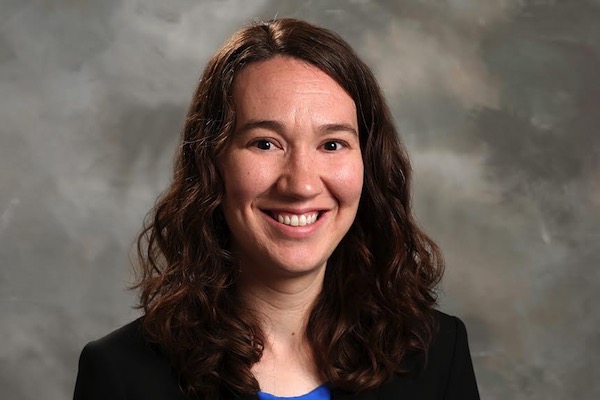
Ellen Kloppenborg is a lead development specialist at Honeywell UOP, where she develops preliminary process design concepts and material balances based on yield and performance estimates for new technology. She evaluates and optimizes processes using process simulation software and performs techno-economic analyses. Ellen continues to be a very involved member of AIChE and has received the Shining Star Award.
AIChE YPC: Tell us about your past involvement in AIChE.
Ellen Kloppenborg: I was the treasurer, president, and outreach coordinator for the Student Chapter at Illinois Institute of Technology. I was also the outreach coordination/publicity at the Chicago local section.
AIChE YPC: What inspired you to pursue chemical engineering?
EK: My parents saw an engineering personality in me and encouraged me to investigate this career. Summer educational programs helped to introduce me to chemistry and confirm that chemical engineering was the path I wanted to take.
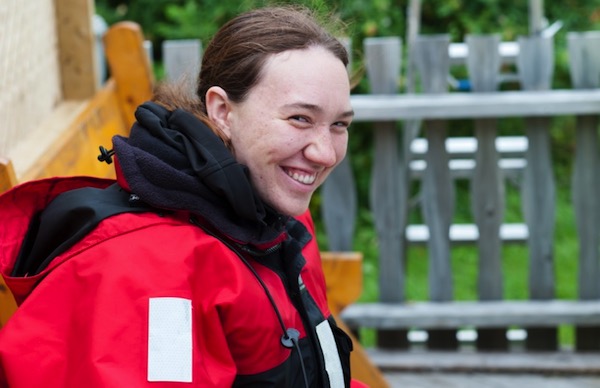
AIChE YPC: Chemical engineering is a diverse field. How did you get involved in your specialty?
EK: When I was in college, I applied for whatever internships were available. I got one at UOP and found I really enjoyed the R&D work I was doing there.
AIChE YPC: What is the most challenging part of your job?
EK: The most challenging part of my job is figuring out how to do things in which I have little prior experience. It's fun to learn new things, but does require more effort and good resources.
AIChE YPC: What do you enjoy most about your job?
EK: I love the people with whom I work. They're a highly intelligent and skilled group of people who can work together to solve interesting and challenging problems. At the same time, they also take the time to teach others and share knowledge. I've learned so much from working with them.
AIChE YPC: What lesson do you wish you would have learned sooner?
EK: You can't be prepared for everything when you travel. I've learned to be more flexible as I've had more travel experience.
AIChE YPC: What are your goals for the future?
EK:I plan to broaden my expertise in the fuels and petrochemicals industries by working in varying roles to expand my skillset. From there, I may take on a managerial position or go deeper on the technical side.
Fun Facts about Ellen
- Favorite snack food: Fruit - whatever is in season.
My parents saw an engineering personality in me and encouraged me to investigate this career.
Learn more about Ellen in CEP Magazine.
Lucas Landherr, 34
Making complex concepts into comics
Lucas Landherr is an associate teaching professor in the chemical engineering department at Northeastern University. He is conducting engineering education research into comics as teaching tools and into the development of K-12 modules. Lucas received the American Society for Engineering Education Northeast Section 2016 Outstanding Teacher Award and Fostering Engineering Innovation in Education Award, among many others.
AIChE YPC: Tell us about your current and previous involvement in AIChE.
Lucas Landherr: I am currently a member of the Societal Impact Operating Council within AIChE, participating within the K-12 Initiative. I’m a co-founding committee chair within the AIChE Education Division. I was also president of the Lafayette College Student Chapter in 2004.
AIChE YPC: Chemical engineering is a diverse field. How did you get involved in your specialty?
LL: I had conducted undergraduate research in both polymeric drag reduction and in water remediation, and I proceeded to pursue further research into polymeric interfaces in grad school and my post-doc, but I realized halfway through undergrad that teaching was really my passion and the best means for me to contribute to the field of chemical engineering. My epiphany came when, even while it felt like I was getting destroyed by transport and thermodynamics, I realized how much I was learning while getting destroyed. The opportunity to provide that understanding of complex theories to others seemed like a perfect job. Being a teaching assistant in grad school only reinforced this conviction. It is fortunate that there are universities like Northeastern that have dedicated teaching professor positions so that there is the opportunity for those with passion in teaching to make substantial contributions to education and the field as a whole.
AIChE YPC: What professional achievement are you most proud of?
LL: The one chemical engineering concept that few students actually grasp and understand - and I feel most ChemEs would agree - is fugacity. Fugacity has complex derivation, does not have an obvious observable physical manifestation, and is the concept that most chemical engineers remember as the concept they don't remember. Trying to address this problem, I collaborated with a professional artist to create a ten-page comic to explain fugacity. The comic describes the thermodynamic basis for fugacity, key relevant equations, how it can be applied, and its larger purposes in phase and chemical equilibrium. Students gained confidence in their understanding after reading the comic, and upon providing the comic online free of use to any educators, the fugacity comic has been implemented in colleges throughout the US, as well as in the UK, Belgium, and Denmark. I'm incredibly proud of how this comic and the others I've made have help break down learning barriers around complex concepts.
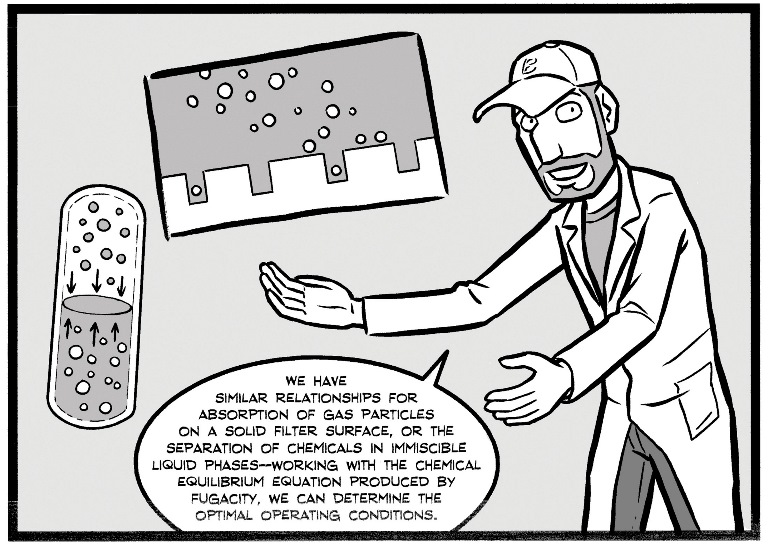
AIChE YPC: What is the most challenging part of your job?
LL: One of the greatest difficulties in chemical engineering education is how broad the field is, so students have very different driving interests. As a professor, this makes it challenging to get so many perspectives to coalesce around learning singular, core concepts and to help all of the students see how the concepts apply to their particular interests and passions.
I've found it is helpful to think of engineering education as teaching students to become effective problem-solvers — that is, essentially giving students the critical-thinking processes and the experimental and analytical skills so that they can then tackle whatever aspect of chemical engineering they then decide to pursue. But to be ready to teach well, I need to have as broad a foundational understanding of students' interests, and that remains an ever-evolving challenge.
AIChE YPC: What do you enjoy most about your job?
LL: Working with students on a daily basis — educating them, advising them, and interacting with them — is a source of pure joy for me. These students all have their own passions and energies that they bring to the classroom, and if you really care about them and about teaching them, it is impossible not to have those passions and energies shared with you. Knowing that you have the opportunity to shape not only students' education but also their lives is a tremendous responsibility. So I take what I do incredibly seriously and am constantly working to improve my teaching and help others improve their teaching. That said, it is such a thorough joy for me to interact with the students that I cannot imagine why everyone isn't just as eager to want to teach.
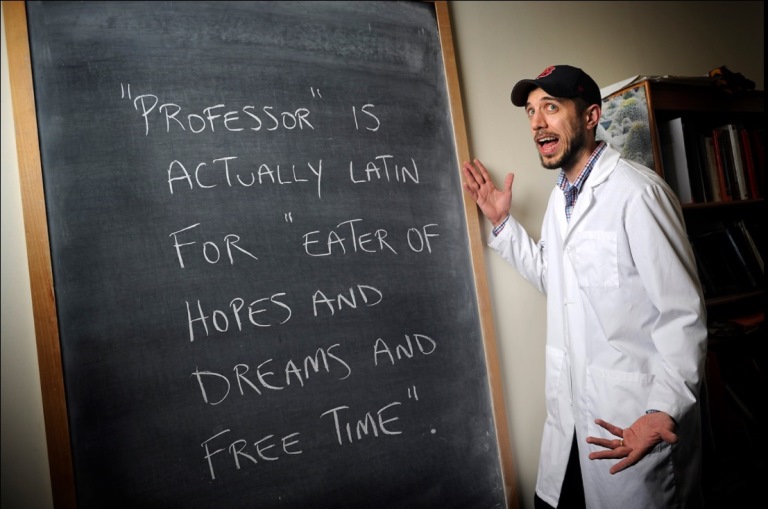
AIChE YPC: What lesson do you wish you would have learned sooner?
LL: I wish I had worked harder at overcoming fear of failure earlier, in part because the fear most often manifested itself in non-engineering aspects of my life. Things that would force me to use different parts of my brain, like embarking on creative side-projects or trying to learn German, would feel so different and uncomfortable from my regular routine that I held back from pursuing passions in those areas, even though they might have helped bring more balance to my personal life. Once I overcame that fear, I found that having dedicated creative outlets allowed me to become more focused in my engineering work, and eventually the creative work even helped to support and improve my research and teaching. Now, to just find the time to get back to learning German!
AIChE YPC: What are your goals for the future?
LL: I would like to continue my engineering education research into the use of comics to teach chemical engineering. I plan to investigate the optimal means of implementing comics as teaching tools, and how to best influence both student understanding and confidence. I would like to combine this comics-driven approach with STEM modules to provide more tools for K-12 educators to stimulate enthusiasm in young students. My dream is to develop textbook versions of a graphic novel to help explain thermodynamics, transport, and kinetics, providing a visual basis to help explain complex theories and concepts and help make chemical engineering more accessible to all. For now, I look forward to continuing to teach as well as I can while doing everything I can to improve and to help others to improve at teaching as well.
Fun Facts about Lucas
- Odd or quirky habits: I have made a daily photo comic for the last 9+ years under the pseudonym "Dante Shepherd"
It is such a thorough joy for me to interact with the students that I cannot imagine why everyone isn't just as eager to want to teach.
Learn more about Lucas in CEP Magazine
Sheena M. Reeves, 33
Evaluating new processes and technologies
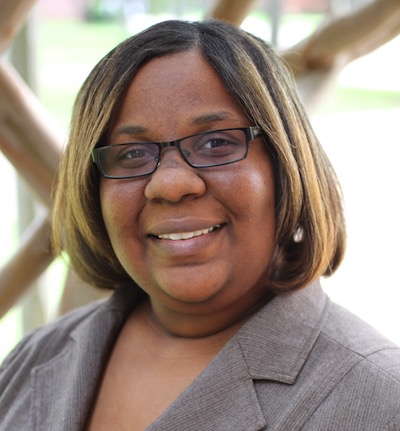
Sheena M. Reeves is an assistant professor at Prairie View A&M University where she enjoys working with a diverse study body. She won the Janice Lumpkin AIChE Travel Award and the Faculty Senate, Clement E. Glenn Outstanding Service Award as well.
AIChE YPC: Tell us about your current and past involvement in AIChE.
Sheena Reeves: I have been a member of the Societal Impact Operating Council (SIOC), the Minority Affairs Committee (MAC), and Faculty Advisor, Student Chapter of Omega Chi Epsilon honor society.
AIChE YPC: What inspired you to pursue chemical engineering?
SR: As a rising high school freshman, I attended an SWE camp at Mississippi State University that exposed young girls to engineering. My experiences during that camp are a major part of my motivation. Plus, I am good at math.
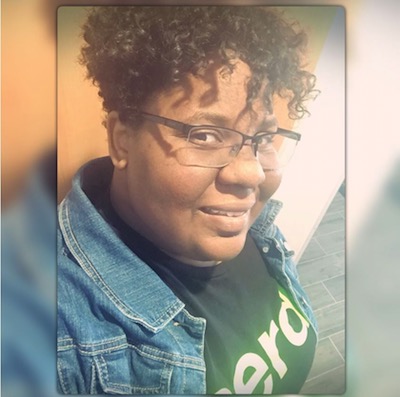
AIChE YPC: What is the most challenging part of your job?
SR: The most challenging part of my job is telling a hardworking student that they have failed a course. I am naturally a compassionate person and would love nothing more than to see everyone succeed; however, I understand that every student enrolled will not successfully complete their degree for various reasons or circumstances. Watching personal struggles destroy great students is never easy.
AIChE YPC: What is the hardest decision you have had to make?
SR: One of the hardest decisions I made was going to graduate school. My friends graduated and started families while I stayed in school five more years. I even gained the nickname of "Professional College Student." Although it was a hard decision, it is one that I'm glad I made.
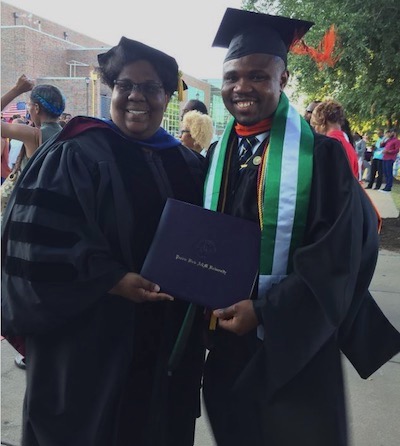
AIChE YPC: What do you enjoy most about your job?
SR: The thing I enjoy most about my job is the diversity of people I encounter. The Houston area is very diverse. As a result, the PVAMU has a diverse campus. This fact is revealed during the World Cup or any other football (soccer) tournament!
AIChE YPC: What lesson do you wish you would have learned sooner?
SR: I wished that I understood feedback/criticism sooner. Most students are afraid of question-and-answer sessions because they do not want to receive negative feedback or receive a question for which they do not know the answer. I would tell my younger self to appreciate the experience and to toss out the nerves. It is more beneficial to receive correction before a problem arises or too much time is wasted on an incorrect theory. Presentations are a time for growth and learning, not for reducing self-esteem.
AIChE YPC: What are your goals for the future?
SR: My short terms goals are, of course, to obtain tenure and build my research portfolio. My long term goal is to earn full professor and become well-known in my field. My life-long goals are to recruit, train, and mentor the next set of chemical engineers through K-16 initiatives. As a member of AIChE, my goal is to increase diversity and student retention.
Fun Facts about Sheena
- If you were not a chemical engineer, what would you be? Music producer
It is more beneficial to receive correction before a problem arises or too much time is wasted on an incorrect theory.
Learn more about Sheena in CEP Magazine.
Ashlee N. Ford Versypt, 33
Earning Praise for teaching, mentoring, and research
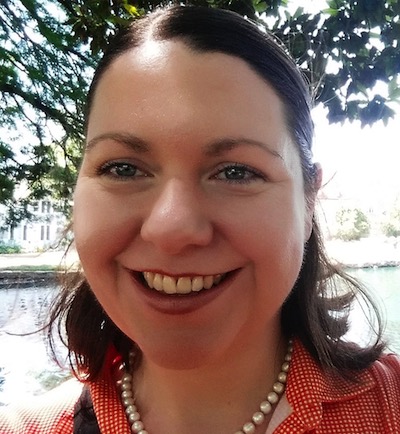
Ashlee Ford Versypt is an assistant professor of chemical engineering at Oklahoma State University. Dr. Ford Versypt directs the Systems Biomedicine & Pharmaceutics research laboratory at the intersection of chemical engineering, computational science and engineering, applied mathematics, biomedical science, and pharmaceutical science. She has advised 15 undergraduate research students and three graduate research assistants. She teaches process controls, reaction engineering, and an elective on scientific computing. Ashlee won the CEAT Excellent Teacher Award, Outstanding Poster Presentation Award, New York Academy of Sciences Symposium on Chronic Kidney Disease, and many more.
AIChE YPC: Tell us about your current and past involvement in AIChE.
Ashlee Ford-Versypt: I am a senior member & in three Divisions: Education, Computing & Systems Technology & Food, Pharmaceutical & Bioengineering. I received the CAST Student Travel Grant in 2008 & Women's Initiatives Committee Travel Award in 2010. I have also attended the AIChE Annual Meeting nine times, where I chaired six sessions and judged three poster sessions. I am chairing four sessions at the 2017 Annual Meeting. I am the CAST social media coordinator and will serve as 2018 Program Coordinator for CAST 10D.
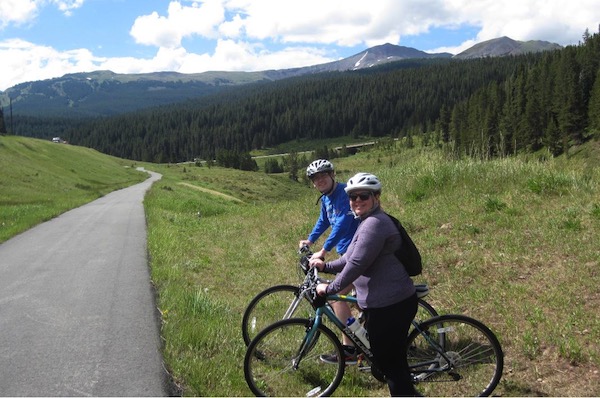
AIChE YPC: What inspired you to become a chemical engineer?
AFV: I began tutoring, informal teaching, STEM outreach, and research as an undergraduate. As a graduate student, I took a course called College Teaching and Academic Careers that significantly influenced my decision to pursue an academic career and to engage in the scholarship of teaching and learning.
AIChE YPC: What professional achievement are you most proud of?
AFV: I am most proud of being named the 2013 Frederick A. Howes Scholar in Computational Science, which is awarded to one or two recent alumni of the DOE Computational Science Graduate Fellowship annually for outstanding leadership, character, and technical achievement. It was a huge honor and a strong validation of my choices to develop my strengths in both teaching and research during graduate school.
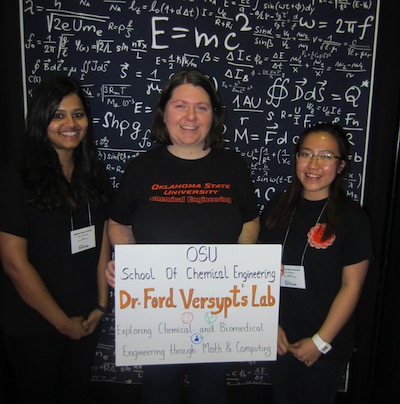
AIChE YPC: What is the most challenging part of your job?
AFV: The most challenging part of my job is balancing the many worthwhile activities and opportunities that compete for my time.
AIChE YPC: What do you enjoy most about your job?
AFV: I love interacting with students. It is great to see when course concepts and research methods click with students new to these areas. I also enjoy seeing the professional development over time in the students I teach and advise.
AIChE YPC: What lesson do you wish you would have learned sooner?
AFV: It's ok to say "no" or "not now" sometimes.
AIChE YPC: What are your goals for the future?
AFV: My long-term goal is to contribute meaningfully to society as a professor through my roles as teacher and scholar and as an individual through my interactions with people.
Fun Facts about Ashlee
- Favorite snack food: Turkey pepperoni
What is your favorite book: Les Misérables
It is great to see when course concepts and research methods click with students new to these areas.
Learn more about Ashlee in CEP Magazine.
Doing a World of Good

This award is proudly supported by the AIChE Foundation. Learn more about the Doing a World of Good campaign and how you can be a part.
Be the Next 35 Under 35 Award Winner
Not an AIChE member? Learn more about membership and its benefits.



